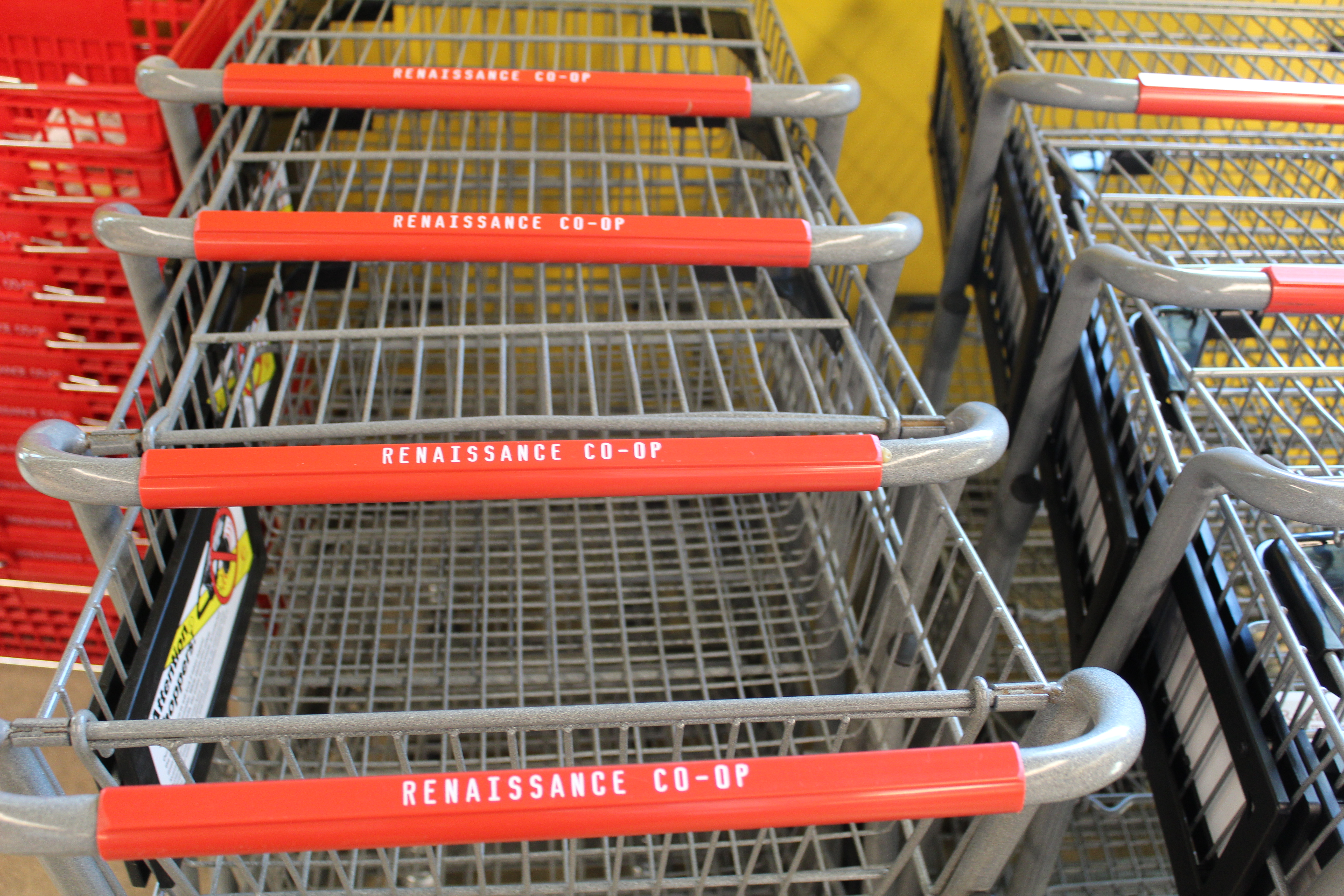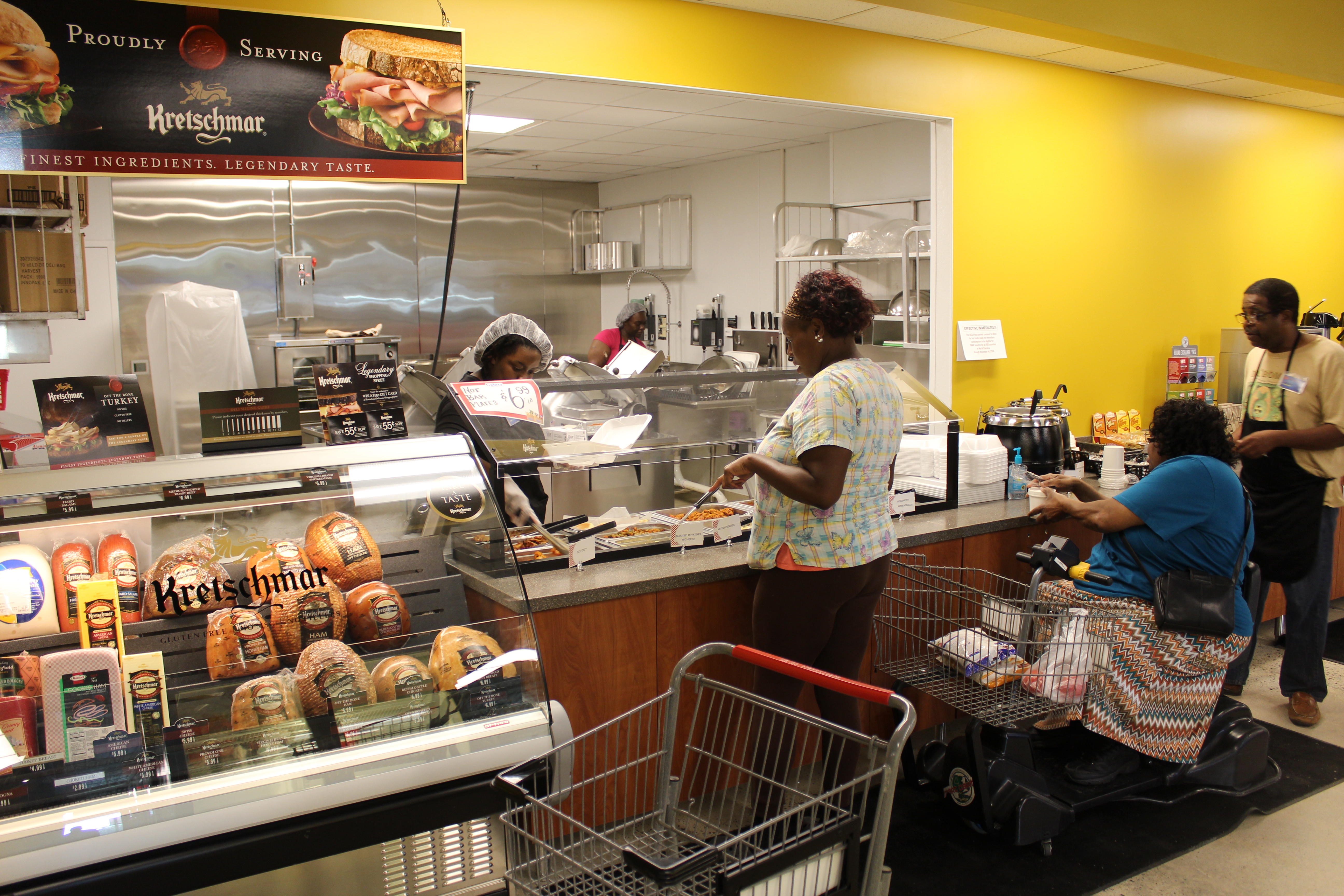Ya' Cousin Cleon
OG COUCH CORNER HUSTLA

The Renaissance Community Co-op is the first of its kind in the nation, opened after 20 years of failed attempts to woo chains to the neighborhood.
When Eleanor Graves moved into her home at the northeast edge of Greensboro, North Carolina, the neighborhood was shifting.
“This home had belonged to a white family,” said Graves, a Black woman who previously lived one county east. “I fell in love with the house, even though I missed Alamance County.”
It was the early 1980s, and white residents were leaving the vicinity en masse. Homeowners who couldn’t sell started renting their houses, she said, and within about five years, almost all of the white residents had fled.
Graves—who held “a really good management job” at a telephone company—liked her new home. She lived near a branch library and a city rec center, and just one block from a Winn-Dixie grocery store. But the neighborhood started to decline, a trend Graves blames on a lack of public investment and renters who she said didn’t care as much about the community.
At the end of 1998, Winn-Dixie announced it would close the store, and other tenants of the shopping center quickly followed. Graves was more fortunate than many of her neighbors—she had a car, and could drive several miles to buy groceries for herself and her daughter. Plenty of residents had to rely on the city’s limited bus system, while others hitched rides or made do with minimal selections at gas stations and similar stores.
It would take nearly 20 years for a grocery store to fill in the gap. After decades of failed attempts to woo another chain, residents decided to create one themselves, opening a resident-owned cooperative grocery in the former food desert in late 2016. The Renaissance Community Co-op is the first of its kind in the nation, and residents like Graves made it possible.
When the Winn-Dixie closed, locals swiftly formed an organization called Concerned Citizens of Northeast Greensboro to recruit a chain grocer in its place. Driven in part by community advocate Goldie Wells—now the city council representative for the overwhelmingly Black district—the group galvanized the surrounding community to the cause. But about 10 years later, the neighborhood still lacked a grocery, and Concerned Citizens pivoted its focus to fighting the reopening of a nearby landfill.
The landfill fight divided Greensboro—a former textile hub in the center of North Carolina that’s more than 40 percent Black—for years. White conservatives from the opposite side of the city pushed to reopen the closed White Street Landfill to municipal solid waste, calling it a cost-saving move. Decrying environmental racism, Concerned Citizens and a new group called Citizens for Economic & Environmental Justice fought hard. After a long, tumultuous battle involving countless local allies, they eventually won.
The day the landfill deal died, activists rallied outside city hall to celebrate. Seasoned leftists Marnie Thompson and Ed Whitfield were there, playing with radical drum corps Cakalak Thunder. As residents celebrated around them, the duo approached Goldie Wells. Northeast Greensboro had built some serious muscle in the landfill fight, Thompson remembers saying as she leaned over the huge drum strapped around her. Now that Wells’ group could return its focus to a grocery store, why not flex that muscle and build their own?
The idea hadn’t come out of nowhere. Thompson and Whitfield ran the Fund for Democratic Communities, a small foundation focused on economic democracy and cooperatives. F4DC, as it’s known, had been connecting with co-ops throughout the South, and holding local educational workshops to broaden awareness about the model they see as a path towards “democratizing wealth.”
Wells and other community members signed on. Eleanor Graves—who hadn’t been actively involved in organizing against the landfill—was among them.
“For me, it was very personal,” she said. “I had seen the neighborhood go from probably lower middle-class to low-income neighborhood. I was very interested in doing whatever I could to stop my neighborhood from further deterioration.”
She hadn’t done anything like this before, and didn’t know much about co-ops. And she wasn’t alone. Most residents who lived near what was then called the Bessemer Shopping Center had no clue what a cooperative was. But they knew they were tired of waiting for a corporation to come in and save them, or for the city to broker a deal to revive the strip.
“To me, the city of Greensboro totally ignored east Greensboro when it came to development,” Graves said, echoing a sentiment common among residents of the city’s predominantly Black east side. “This is for me and my community, my family, to show that we can do these things. We can make our own futures.”
Thompson’s Fund 4 Democratic Communities ponied up substantial funds to support the co-op grocery’s development, but she is quick to credit community buy-in for the store’s success. She recounted a story about a planning meeting in 2012 where resident Sadie Blue said, “If we’re serious about this, we need to pony up,” and threw a $20 bill on the table. Everyone started tossing bills in. Blue would become the co-op’s first official owner. Others slowly joined, some of them bringing envelopes with five $1 bills at a time to co-op meetings, making small but steady payments on their $100 memberships.
“It means a lot to me personally that I saw a lot of people doing that month in and month out,” Thompson said. “It showed me that this was really needed in this community, and anchored in this community.“
Anyone making active payments on their ownership is considered a full voting owner, Thompson said. While not all of the owners live in the immediate vicinity, that’s its base. Her story illustrates part of the main reason Thompson and others pushed for a cooperative structure.
“It is owned by the community so it’s never going to pick up and go somewhere else chasing a higher [return on investment],” Thompson said. “This community owns this store. If it owns this store, what else can it own and direct in its economic future?”
Thompson said another chain did a market study for the same area that showed the location would be profitable. But execs realized that it could cannibalize business at one of its other stores in the city—where residents had been trained to drive or take the bus—and so Thompson said they determined it wasn’t worth it. Other businesses periodically showed interest, but nothing materialized.
For Graves, part of the draw of a cooperative model is community control. She felt listened to in the planning process, and deepened her involvement. When the budding organization started to form its own board, she decided to run, winning a seat. Slowly, her community pushed forward.
In late 2016, with backing from a variety of lenders and investors including churches, the city, foundations, and others—as well as about 1,000 member-owners—the Renaissance Community Co-op opened.
Renaissance isn’t like other cooperative grocery stores. For starters, it isn’t designed to provide natural and organic food, though it does sell some of both. Instead it’s built to fit a much more basic need, providing a full-service grocery store in a longstanding food desert. They hired the vast majority of staff from the immediate area, Thompson said. Graves added that it’s an added benefit that they’ve been able to create jobs that pay above minimum wage for her community.
“I am just so tickled every time I go in there,” Graves said. “It’s looking great.”
@JahFocus CS @Booksnrain
